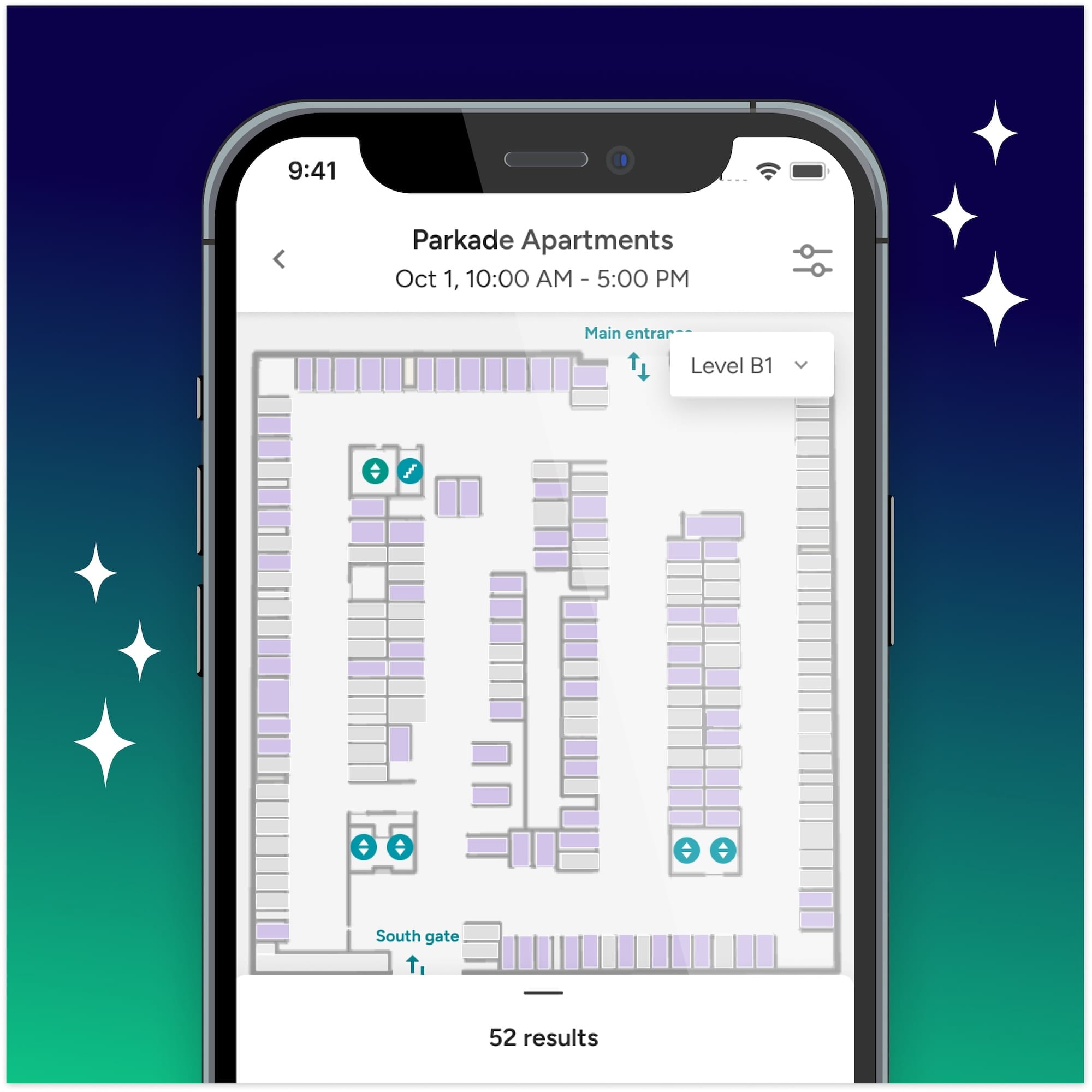

TABLE OF CONTENTS
If there’s one thing we can count on in 2024, it’s that technology will keep evolving to solve more and more problems in our world. It’s even beginning to take on an increasingly bigger role in industries that historically haven’t been software-focused. Multifamily real estate is one example.
Over the past several years, there’s been an explosion of innovation in the property technology space, also known as “proptech.”
While we’ve already seen major growth in market value, this trend is only going to continue over the next 10 years. In the next decade, the market size is projected to quadruple from $35 billion to $133 billion.

Whether it’s improving operational efficiency, generating revenue, or attracting new residents, there’s no end to the ways the latest technology can benefit property managers. These enhancements can be the make-or-break factor in a community that stagnates and one that shines, and the multifamily professionals who keep their finger on the pulse of the latest trends and technologies are best positioned to make their property stand out.
That being said, you may not have the time (or interest) to scroll through all of the latest tech news to search for mentions of proptech, and even if you did, how can you determine what’s a fleeting trend and what’s real innovation?
Luckily, we’ve nerded out on it all for you and have uncovered the fastest-growing areas in proptech. Aside from table stakes property management software (expected to grow from $24.18 billion to 52.21 billion market size between now and 2032, by the way), here are the areas you want to keep your eye on and perhaps begin to implement now, if you haven’t already.
While smart home technology has been growing in popularity in single family homes for nearly the past decade — just think of how many of your friends or family members have a Google home or Alexa — it’s starting to become table stakes in multifamily, too.
In short, smart home technology includes devices and systems that automate and enhance the living experience in rental units.
In 2024, the Smart Home market is projected to reach $154.4 billion, and over the next 4 years, it should have an annual growth rate of 10.67%, meaning the market will likely be valued at $231.6 billion in 2028. Household penetration — i.e. the number of households with smart home technology — is expected to be at 18.9% in 2024 and should explode to 33.2% by 2028.
Many current studies show that the availability of built-in smart home technology is already one of the main considerations that renters have when looking for a place to live. More than 75% of residents indicated in a survey that they would pay more for a package of 3 smart home amenities.
The growth of this market points to a clear opportunity for apartment complexes to get ahead of the growing expectations that current and prospective residents are likely to have.
Some resident-facing applications for smart home technology include:
These use cases can both increase tenant satisfaction and retention, since they are able to take advantage of a more modern, user-friendly system, as well as increase security for the property.
These benefits can extend to operations, as well. Property managers and owners can use smart leak sensors and energy management systems to help optimize energy use and catch leaks before they become much more costly. This delivers the potential to reduce water damage repair costs by 70-90% because it allows for more preventative maintenance.
Smart locks also bring some benefits for owners and management because they eliminate re-keying expenses, which are on average $50-100 every time a unit turns out. This can add up to thousands of dollars each year, depending on how many units your property has.
Parking is one area of property management that has been slower to experience a renaissance. Too often, we see all aspects of parking operations handled between spreadsheets, pen and paper, and spoken word between team members. Up until now, there were no options to modernize operations.
The tide is slowly beginning to change, though.
The sheer demand from residents alone is strong enough to prove the great need for better parking management technology. Smooth parking operations consistently tops the list of what residents care about most in a potential home. A recent study found that 68% of residents considered controlled access parking an essential when deciding which apartment to sign a lease.
Innovative parking management software, on the other hand, makes it possible for both residents and property staff to enjoy an easier and more intuitive parking experience.
The benefits of a technologically advanced approach to parking can’t be understated. Parking technology can:
Gone are the days where Virtual Reality (VR) and Augmented Reality (AR) is just for video games. It’s now beginning to make its way into more professional environments, including multifamily real estate. And in fact, there’s a real possibility that AR/VR-supported leasing operations may become table stakes sooner rather than later.
By 2025, the global market size of augmented reality in real estate is projected to reach $2.6 billion. COVID is to thank for the start of this boom, due to the necessity of a solution for contactless or remote tours.
But the need didn’t go away once COVID surges began to go down.
In a recent survey, 95% of renters would be more likely to rent a property if they have access to a 3D virtual tour on their website. And 90% of that same group surveyed indicated that they would be more likely to choose a property with a 3D tour available when compared with a property that doesn’t.
As indicated above, virtual tours are what are really driving this trend. Many properties are already using technology like Matterport or Zillow 3D Home to create immersive virtual tours. While in-person tours are not likely to go anywhere anytime soon, these online tours offer more flexible options to accommodate a wider range of needs.
Tina West, executive vice president, Client Advisory Group, SRG Management said of this opportunity:
“Digital is the new curb appeal. They can do their homework to narrow down their selections. Where they physically toured 10 communities before, they now cut it down since they have delved in online first.”
Offering these virtual tours can help to reduce vacancy rates by helping prospective tenants make quicker decisions. On top of that, it can also lead to cost savings due to the reduced need for physical staging and in-person viewings, as well as a competitive edge for marketing.
There are also growing opportunities for AR/VR to be used on the back-end of property operations, too. Many properties are taking advantage of augmented reality to assist them with interior design work and space planning, which is critical when trying to compete in luxury markets, either for furnished tenants units, show units or common spaces.
We can’t talk about technological innovation without talking about Artificial Intelligence. There are several ways that AI is playing an increasingly larger role in the multifamily property industry, helping to deliver more efficiency and enable better data-driven decision making.
In 2023, the global market for artificial intelligence in real estate was valued at $2.1 billion. Between now and 2030, it’s projected to expand to $22.5 billion, demonstrating a 27.9% compound annual growth rate.
While there are several applications for AI in real estate, data analytics delivers the most impact for property managers and owners, both in the current and future state of the technology.
As just stated, there are a variety of AI use cases that are not data related, such as marketing automation, virtual leasing agents, and automated tenant screening, those are likely to become table stakes as we move forward in the next decade or so.
Here are the more innovative data-driven use cases:
By using AI as a tool for better decision-making, properties are able to improve their profitability, reduce risk, and better allocate their resources.
Technology in the rental space is even making its way into the hands of residents. To illustrate this, we thought it would be fun to point out an interesting startup to provide some inspiration for all of the new and evolving possibilities that are emerging in the proptech space.
Stake is a fintech startup that is a win/win for both residents and landlords by incentivizing on-time rent payments or early renewals with cash-back rewards. While this is standard in other industries like airlines and retailers, it’s an interesting new development in multifamily real estate.
Rowland Hobbs, co-founder and CEO, explains how the dashboard works:
“It becomes a pretty simple equation: here’s how much cash back to get the action that you want from your renters.” This gives landlords the option to really customize their incentives to address any specific pain points when it comes to on-time payments or renewals.
This is just one example among an influx of innovative tools that benefit renters.
While your team may have the heart to provide a great face-to-face experience, if you don’t scale your processes to take advantage of the latest technology, you will likely struggle to keep up.
By keeping tabs on all of the latest innovation happening in your industry, you’ll be well-positioned to lack onto competitive advantages early.
Inspired by new technology but having a hard time getting budget approved? Check out our blog post with expert advice about how to make the case for new proptech.
.jpg)
As parking management becomes increasingly digital, security becomes critical — and we’re excited to share that we've achieved a major security milestone.
Read Story
We’re thrilled to announce one of our most significant leaps forward this year: the launch of dynamic maps across our mobile and web applications.
Read Story
Now that AB 1317 is official, it’s time to brush up on the requirements and see how your properties stand to benefit.
Read Story